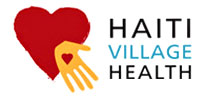Country: Haiti
Length of Trip: 1 Week
Trips per Year to Latin America: 5
Cost: Not available
Urban/Rural: Both
Type of Volunteer: Physician/mid-level provider, Nurse
Type of Organization: Secular NGO
Type of Clinic: Standing Clinic
Description:
HVH’s primary mandate is to provide increased access to health care and medical treatment to populations who have previously lacked such basic services. HVH operates two clinics in addition to conducting extensive outreach services throughout the Bas Limbe region in order to provide vaccinations, maternal and pediatric health services as well as treatment of trauma and common diseases such as pneumonia, malaria, cholera, skin infections and diarrhea.
Bod Me Limbe Clinic
The Bod Me Limbe Clinic is HVH’s primary medical facility is open 5 days a week to provide general outpatient medical services as well as 24 hour emergency coverage and ambulance service. The clinic sees an average of 150 patients per week. In November 2011, HVH was delighted with the news that a grant from The Grand Masons of Scotland will enable us to renovate and expand the clinic. In addition to improving electrical and water supply, we will be adding a birthing room, observation room and increase overall bed space.
Shada Clinic
In 2011, HVH assumed management of the Clinique Communautaire de Shada in the nearby city of Cap Haitien. The Shada clinic is open 2 days a week and staffed by 1 nurse, 1 physician, 1 pharmacist and 1 traditional birth attendant. This clinic is the only low cost clinic serving the 25,000 Haitians living in the Cap Haitien area and currently services approximately 300 to 400 patients a month. The Shada clinic will receive a portion of the Grand Masons of Scotland grant for some much needed repairs and renovations.
Bas Limbe Outreach Services
While the clinic is located in the village of Bod Me Limbe and welcomes patients from the surrounding villages, many elderly patients as well as those weakened by malaria are often unable to make the journey. HVH began sending teams consisting of a physician, nurse, local community health worker and translator into the surrounding countryside. These visits have proven invaluable and educational and have also provided an opportunity to evaluate local water supplies, food sources and sanitation concerns in order to better understand the region.
Emergency Transport Truck
HVH purchased a truck ambulance in the spring of 2011, and since that time has transferred over 200 patients to hospital, the majority at night due to emergencies. This has been a critical addition to HVH’s services.
Medical Record Tracking
HVH is committed to learning about the local population in order to better assist with their needs. An important part of this has been to implement a full charting system for each patient similar to Western family practice methods. This information is the only collection of health and demographic information for the people living in the region. These efforts are being supported by a full-scale census of the entire Bas Limbe region.
The data collected allows HVH to measure improvement in a patient’s condition, make informed choices on medication purchases, better respond to and treat malarial outbreaks in the region and demonstrate to the Haitian government the needs of the village. This enables HVH to better lobby for assistance.
Family Planning and Sexual Health Education Program
Many women in Haiti have very few options when it comes to family planning and even less control. Availability and use of condoms is limited and local cultural and sexual politics leave women with little say in the family planning process. Safe and effective female birth control options are in limited supply and access to them is restricted due to lack of consistent medical oversight and resources.
To address this, HVH conducts sexual health education sessions and meetings with village women, who have indicated a strong desire for birth control. HVH regularly distributes condoms and administers injectable birth control for all women who request it. It is not administered lightly. All women who request birth control must attend an educational session that covers issues of sexually transmitted infection and pregnancy testing. This is the first such program of its kind in the region.
There are also sessions targeted for the men in the region that promote the need for proper condom use in order to prevent sexually transmitted diseases, in particular HIV due to the high prevalence (13%) in rural areas.
Organizational Base: Jacksonville, Florida; Miramichi, New Brunswick
Other Programs: Health worker training, malnutrition programs, micro credit loans

 (5 / 5)
(5 / 5)  (0 / 5)
(0 / 5)  (4.7 / 5)
(4.7 / 5)
Comments
0 comments